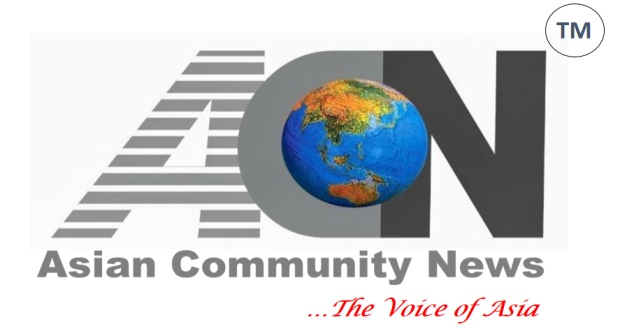New Developments in Investor-State Dispute Mechanism: Its Importance for Japanese, Korean Investors in India
The New Model BIT (Bilateral Investment Treaties) and India’s conservative and guarded stance raise the question: Whether such a shift in the investor-state regime has any effect on the protection of Japanese and Korean investments in India?
By Ms. Neetika Bajaj, Managing Associate, & Ms. Astha Garg, Senior Associate, Dispute Resolution Team, Zeus Law Associates.
Recently, Japanese PM Fumio Kishida announced plans of investing $42 billion over the next five years in India. This comes as a major development in the steady growth in economic and commercial relations between India and Japan, with the latter becoming a key partner in India’s economic transformation.
In the recent round of negotiations between India and the Republic of Korea for upgradation of the Comprehensive Economic Partnership Agreement (“CEPA”) which closed as recently as November 2022, both countries agreed to promote conducive trade environments to enable the complete utilization of the benefits offered under the CEPA. This development comes in light of the upcoming 50th anniversary of the diplomatic relations between the countries.
These developments demand a spotlight on the evolution of India’s investment protection and dispute settlement regime to safeguard the interests of both Japanese and Korean investors.
Role of BITs in Settling Disputes
The instrument, typically, used by States to safeguard and protect investment flowing from their country into a host state has been Bilateral Investment Treaties (BIT) and dedicated investment chapters in several comprehensive economic/free trade agreements like the CEPA between India and Japan or the CEPA between India and Korea. These international investment agreements provide for reciprocal commitments among Party States to protect the private foreign investments made into one another.
A major aspect of BITs/investment chapters is the inclusion of provisions relating to dispute resolution, most often, in the form of Investor-State Dispute Settlement (“ISDS”) provisions that allow the aggrieved party to pursue international arbitration against the State. 97% respondents indicated, in the 2018 International Arbitration Survey conducted by the Queen Mary University and the School of International Arbitration, that the reliance by parties on ISDS provisions and subsequently international arbitration is due to the attributes unique to arbitration such as party autonomy, confidentiality, transparency, cost and time efficiency. As a result, international arbitration clauses, coupled with standards of Fair and Equitable Treatment (“FET”) and Most Favourable Nation (“MFN”), were used extensively in BITs.
India’s Approach
Based on this approach, by the end of 2011, India had signed a total of 82 (eighty-two) BITs with 73
(seventy-three) having come into force by the end of that year. Apart from the standalone BITs, India also signed more than ten free trade agreements with investment chapters, among them are the India-Japan CEPA and the India-Korea CEPA.
However, there was an observable shift in India’s stance post the White Industries settlement claim. As a result, India rethought its BIT regime and adopted a framework that is geared more towards preserving the regulatory freedom of States. A New Model BIT was introduced in 2015 with a more guarded scope for investor protections. Following this, India issued notices for the termination of BITs with several nations including Germany and Britain.
Relevance for Japanese and Korean Investors
The New Model BIT and India’s conservative and guarded stance raises the question: Whether such a shift in the investor-state regime has any effect on the protection of Japanese and Korean investments in India?
Currently, there are no reports that indicate the potential termination of the existing CEPA between India and Japan and/or India and Korea. However, with the terms of the India-Korea CEPA being renegotiated, investors may be cautious of the difference between the terms of investment protection between the New Model BIT and the subsisting CEPA. The following are some of the key differences between the New Model BIT adopted by India and the existing CEPAs with Japan and Korea which may be subject to these new terms subject to renegotiation:
| Provisions | India-Japan CEPA | India-Korea CEPA | New Model BIT |
| Definition of “investment” | Asset-based | Asset-based | Enterprise-based |
| FET and MFN clauses | Included | Included | Excluded |
| ISDS mechanism | No mandatory provision | No mandatory provision | Mandatory exhaustion of all local remedies for a period of 5 years before commencing arbitration |
While the asset-based definition of investment in the CEPA covers any and all assets owned or controlled by the investors, the enterprise-based approach equates an “investment” with an “enterprise” which must necessarily be incorporated in the Host country (India in this case). By doing this, it excludes protection extended to investments made without the incorporation of an enterprise in India.
Further, by excluding the FET and MFN clauses, India has opted to exercise more sovereign and regulatory authority over the process.
Further, the inclusion of a clause, in the New Model, that mandates parties to first exhaust all possible domestic remedies, for a minimum period of five years, only after which can they send a notice for invoking international arbitration may cause some heartburn.
Conclusion
At this point in time, Japanese and Korean investments continue to be protected by their respective CEPAs, and some, like Nissan, have been able to effectively utilise it to successfully resolve disputes. However, when structuring their upcoming investments in India, Japanese and Korean companies and their advisors would be well advised to take into account India’s evolving regulatory environment.
About the Authors
 Ms. Neetika Bajaj is a Managing Associate and Ms. Astha Garg is a Senior Associate in the Dispute Resolution Team at Zeus Law Associates.
Ms. Neetika Bajaj is a Managing Associate and Ms. Astha Garg is a Senior Associate in the Dispute Resolution Team at Zeus Law Associates.
 Zeus Law Associates is an ISO certified full service corporate commercial law firm with a team of dedicated and experienced lawyers well versed in handling domestic and cross border transactions across sectors, jurisdictions and regulatory landscapes.
Zeus Law Associates is an ISO certified full service corporate commercial law firm with a team of dedicated and experienced lawyers well versed in handling domestic and cross border transactions across sectors, jurisdictions and regulatory landscapes.



